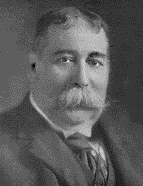

He belonged to many cultural and scientific societies, including the Brazilian Historical and Geographical Institute, the Pernambuco Archaeological and Geographical Institute, the Brazilian Academy of Letters , the Pernambuco Academy of Letters, and the Lisbon Academy of Sciences.
His ties with Portugal were strong, especially his long friendship with Fidelino de Figueiredo, which began in 1912 and coincided with the intellectual's active participation in Portuguese political life before his exile in Brazil. Alberto Lamego, António Sardinha, Carlos Malheiro Dias, Edgar Prestage, Hipólito Raposo, and João Lúcio d'Azevedo were also part of his social network in the post-First World War period. This gave him access to universities, publications ( Nação Portuguesa [Portuguese Nation]), and scientific societies (Academy of Sciences) in Portugal. At a time of unhappiness, when poor health and financial difficulties made his life in Washington very problematic, Oliveira Lima relied on his Lusitanian origins and found in them recognition for his work. Among the honours he received, one that stood out in 1923 was the series of lectures he was invited to give at the Faculty of Letters in Lisbon on the occasion of the inauguration of the subject of Brazilian Studies. It was a favourable opportunity to meet the master Teófilo Braga again, who attended his presentations on the Independence of Brazil, Brazil's historical evolution, Brazil's foreign policy and economic development, and Brazil as an American power. These studies were collected in a volume in Aspectos da História e da Cultura do Brasil [Aspects of Brazilian History and Culture] and published by the University. In the year of his death he was honoured with a special issue of Lisbon's Revista de História [History Magazine] .
This work is financed by national funds through FCT - Foundation for Science and Technology, I.P, in the scope of the projects UIDB/04311/2020 and UIDP/04311/2020.
